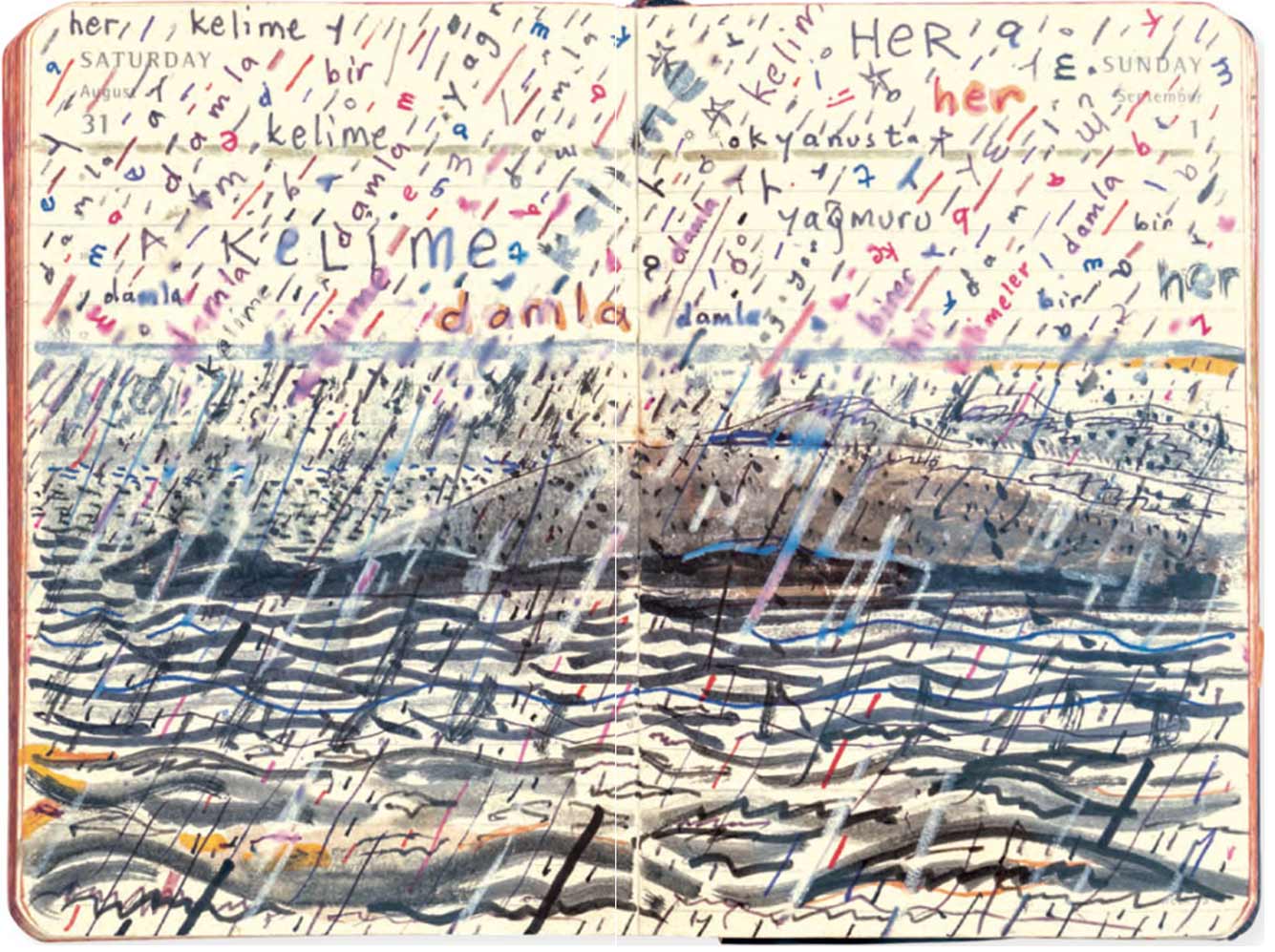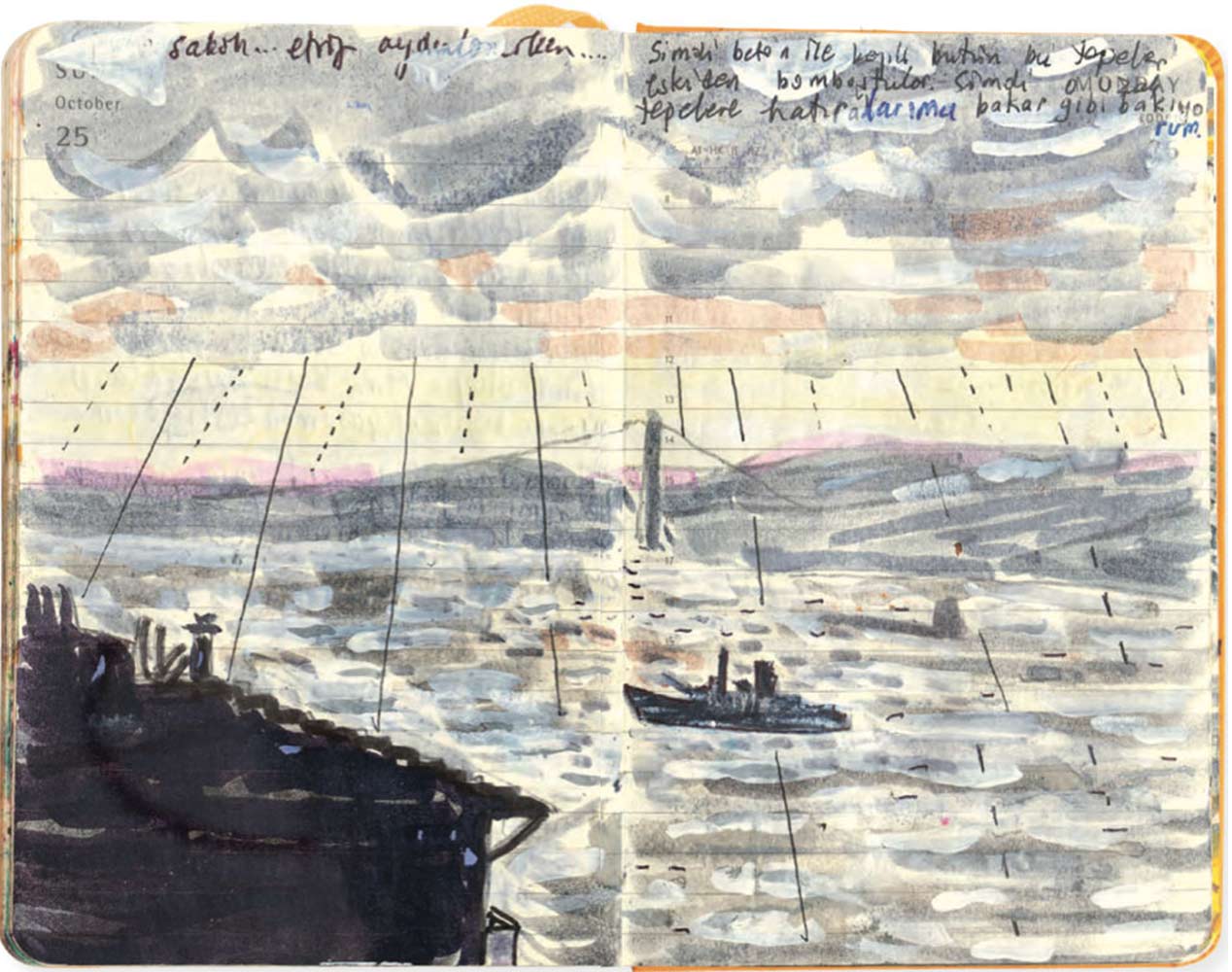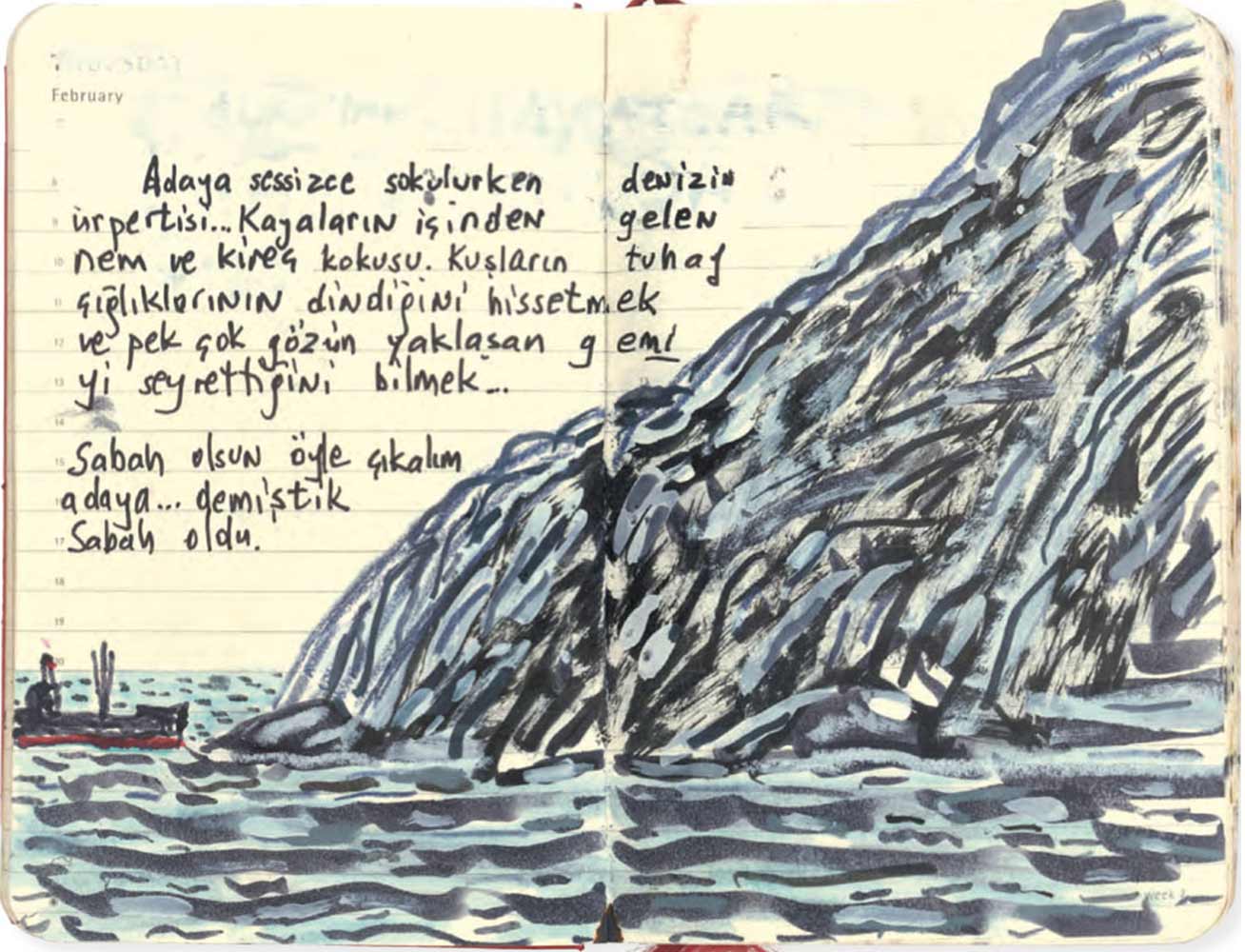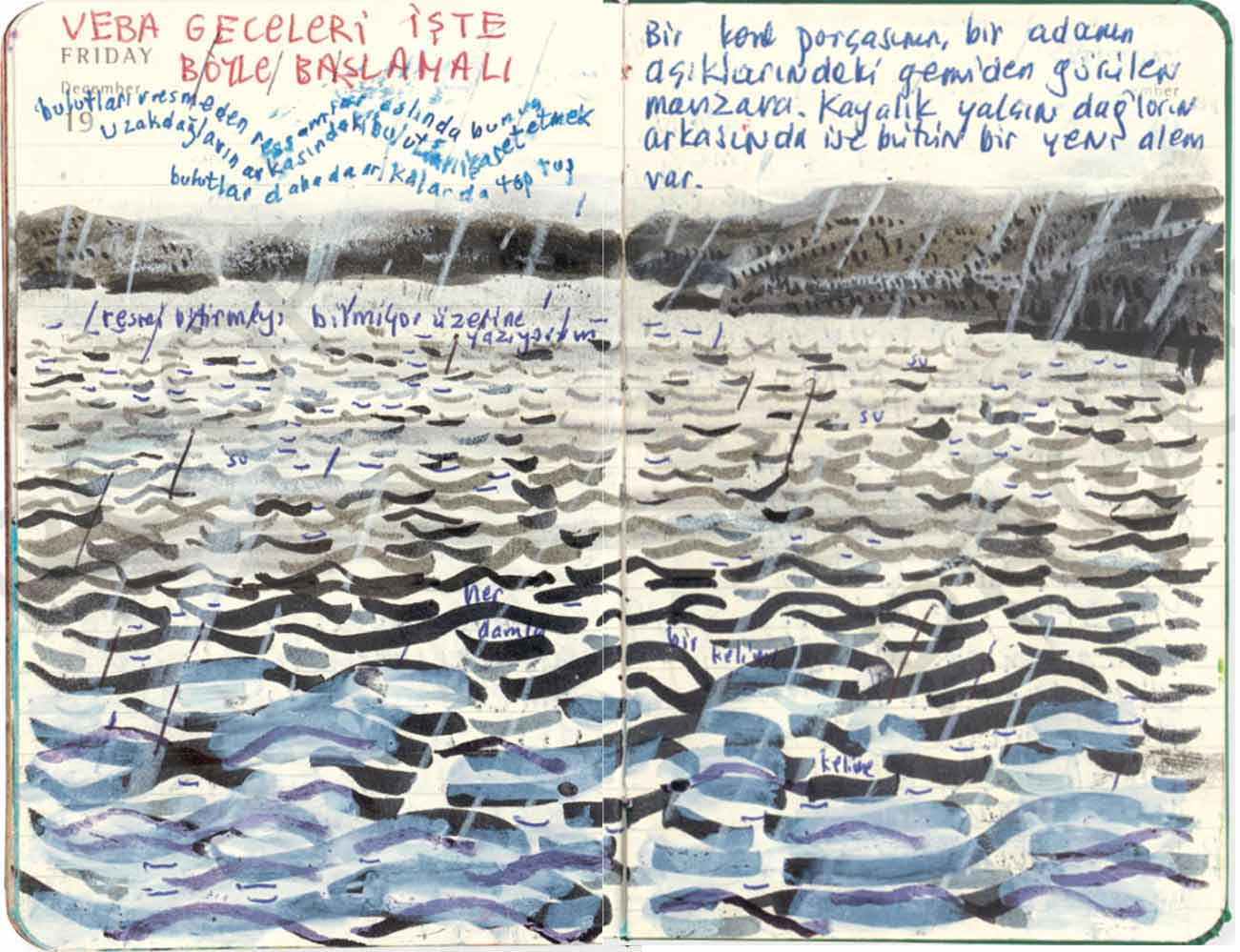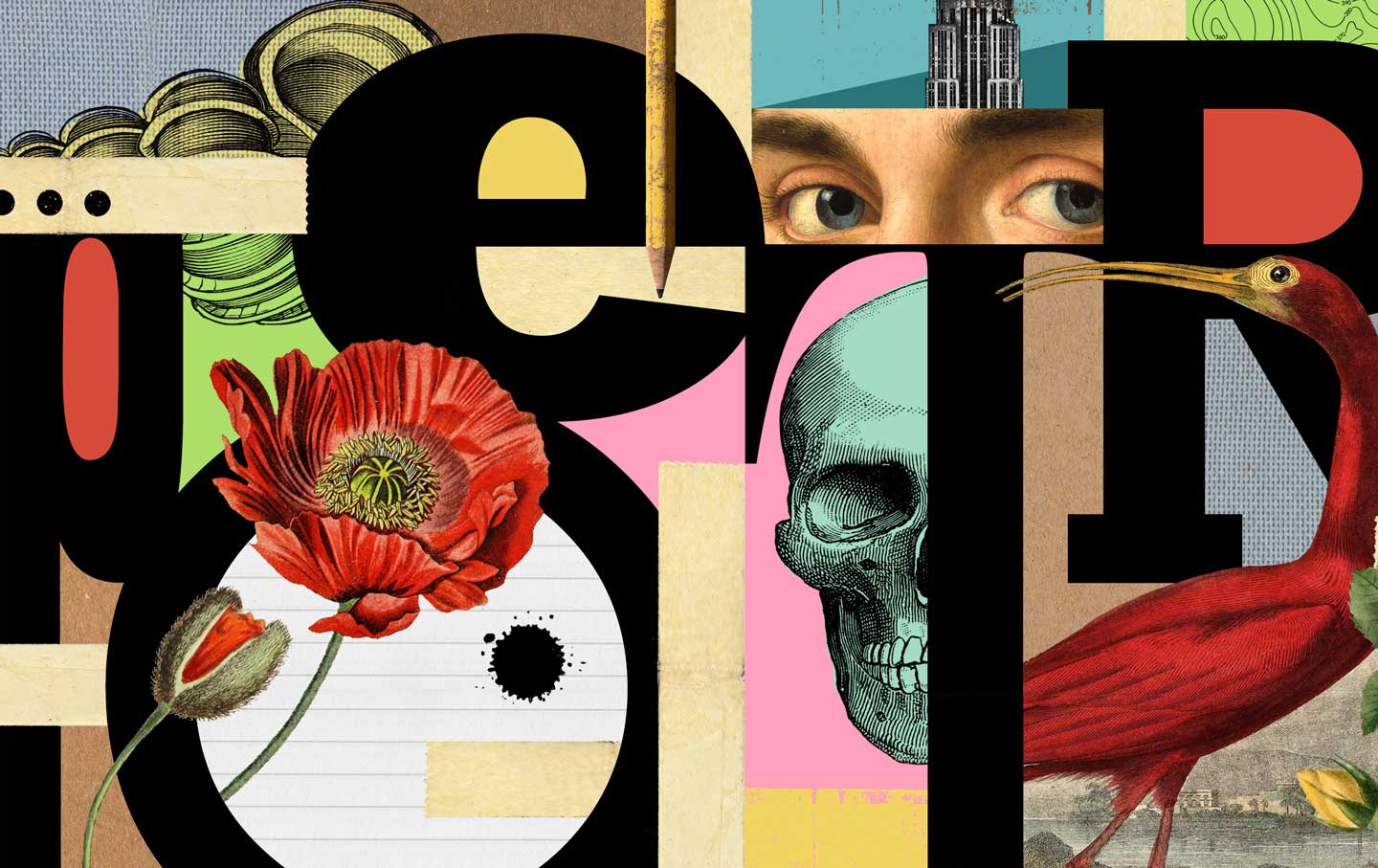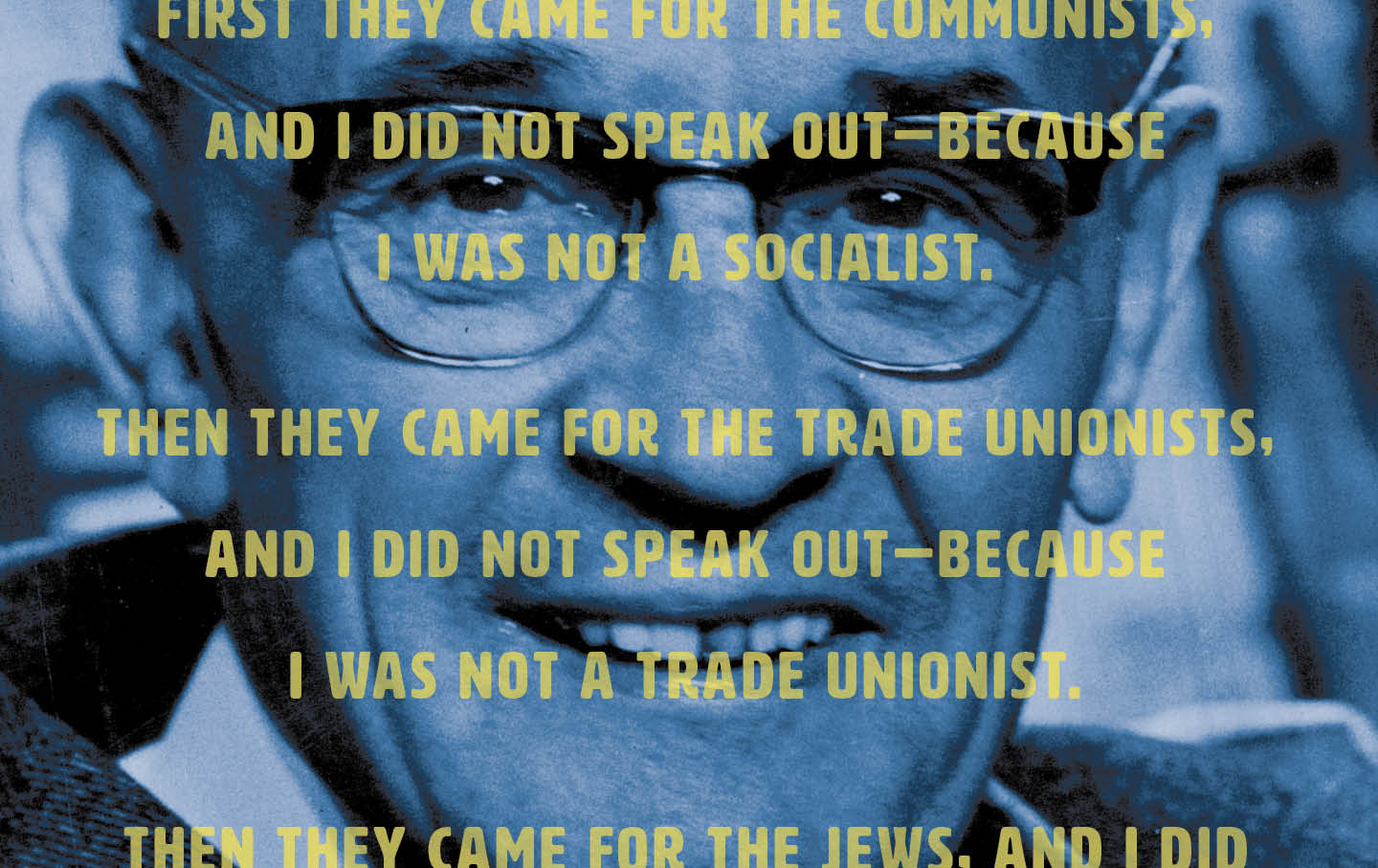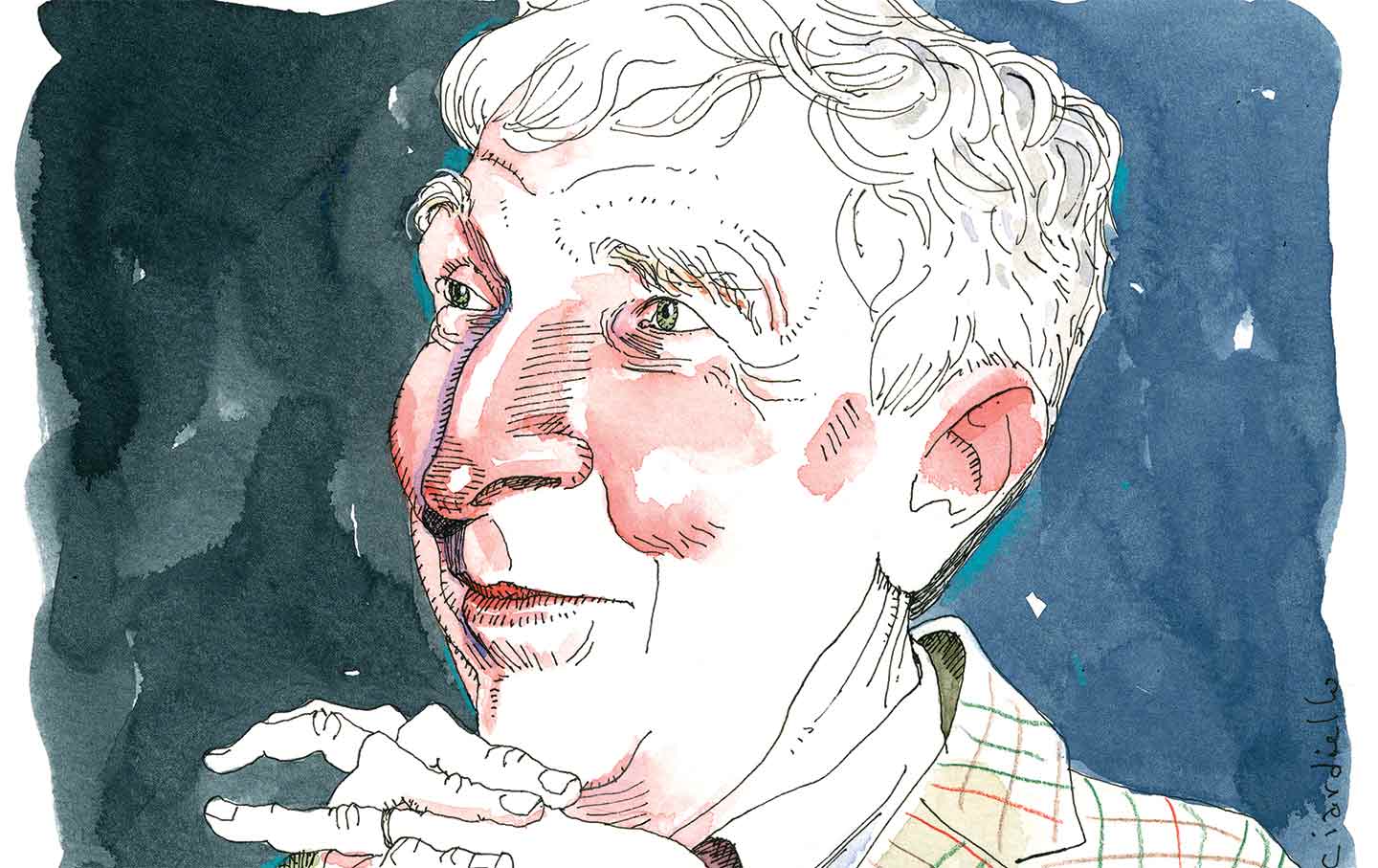Rain and Mountains
Pages from a novelist’s notebook.
Rain and Mountains
Pages from a novelist’s notebook.
After spending his adolescent years imagining he would become a painter, Orhan Pamuk had a change of heart. “At 22, I killed the painter inside of me,” he recounts, “and began writing novels.” Since then he has gone on to write many novels, including The White Castle, My Name Is Red, Snow, and Nights of Plague, and win the Nobel Prize in Literature. Yet his love of visual art, and in particular landscapes, remained, and in 2008 he “walked into a stationery shop, bought two big bags of pencils, paints, and brushes, and began joyfully and timidly filling little sketchbooks with drawings and colors. The painter inside of me hadn’t died after all.” The following are from these sketchbooks, excerpted from Memories of Distant Mountains: Illustrated Notebooks 2009–2022.
Excerpted with permission from Alfred A. Knopf. ©2024 Orhan Pamuk.
